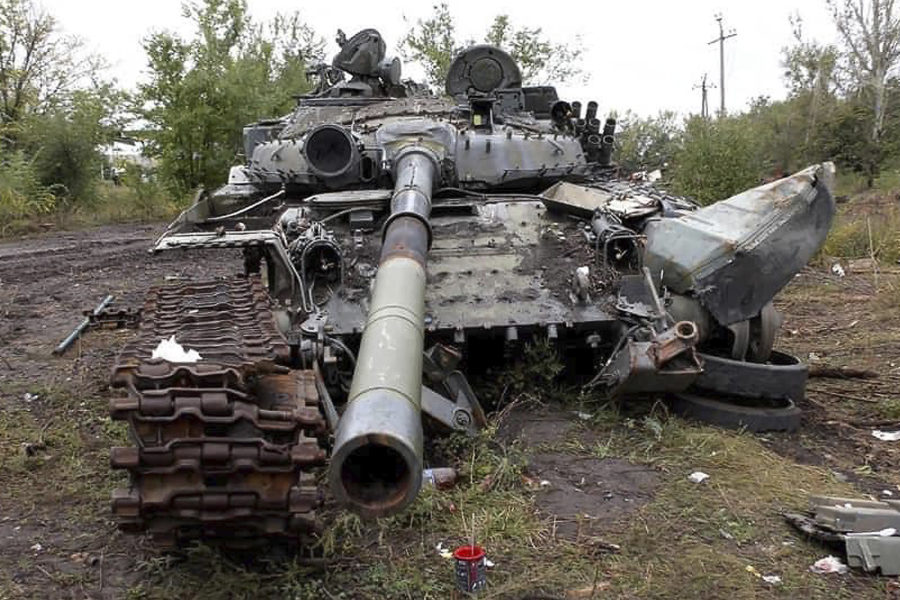The war in Ukraine isn’t likely to end soon, because Russia is gaining ground, making more munitions, and getting more help from China, Director of National Intelligence Avril Haines told lawmakers May 2.
“We assess that President [Vladimir] Putin thinks that domestic and international trends are in his favor,” Haines told the Senate Armed Services Committee. Putin is “reconstituting” Russia’s strength after a disastrous first two years of the war, which have seen more than 300,000 Russian casualties and cost hundreds of billions of dollars, Haines added.
Given Russia’s harsh tactics and recent successes, there are few meaningful “pathways out of the war, including through negotiations,” Haines said. “These aggressive tactics are likely to continue and the war is unlikely to end anytime soon.”
Right now, Russia is making slow but steady progress on the battlefield, “with the potential for tactical breakthroughs along the front lines in areas such as Donetsk and Kharkiv,” Haines said. At the same time, the Russians are amping up ammunition production, she noted, while pointing out delays in U.S. aid to Ukraine and Europe’s lack of surge capacity in munitions.
Russia’s gains in armaments production are due in no small part to China’s willingness to provide components and material to Moscow, Haines said—“one of several factors” that have boosted Russia’s momentum in recent months.
While Putin has made comments suggesting he’s willing to enter into peace talks regarding Ukraine, there is no indication “that he is willing to make significant concessions,” Haines asserted.
By striking civilian targets and infrastructure in Ukraine, she said, Putin aims to convince Ukrainians “that continuing the fight will only increase the damage to Ukraine and offer no plausible path to victory.”
Hitting Ukraine’s infrastructure is also creates logistical hurdles for moving forces and supplies, slows defense production, and builds pressure on Kyiv.
Haines said Putin is “doubling down” on the war, boosting defense spending to nearly 7 percent of Russia’s GDP. Military spending now accounts for 25 percent of Russia’s government budget, she added.
“In many ways, this is prompted by the fact that Russia has paid an enormous price for the war in Ukraine,” she said, noting the casualties and hundreds of billions in sunk costs, but also that it has “precipitated Finland’s and Sweden’s membership in NATO,” which Putin did not want. Putin is using the entry of Finland and Sweden into NATO as justification for expanding the size of the army, she said.
Haines said Putin’s career in the KGB shaped his worldview that “Russia is under threat” from NATO and needs to push back against it. A “larger, better-equipped military will drive that point home to Western and domestic audiences which couldn’t believe” Russia needed a more powerful military, she said.
Putin’s “strategic goals also remain unchanged. He continues to see NATO enlargement and Western support to Ukraine as reinforcing his long-held belief that the United States and Europe seek to restrict Russia.”
Russia also sees the Hamas-Israel war as a means “to divide us from our allies,” Haines asserted.
On the ongoing conflict in the Middle East, Haines repeated the Biden administration’s previous assertion that Iran didn’t have prior knowledge of Hamas’ Oct. 7 attacks but is using the situation to further expand its influence in the region and portray itself as the leading regional opponent of American and Israeli power.
Haines also said that Iran is not directly pursing nuclear weapons, but “what they’re doing is shortening the time period that it would take for them to actually enrich a sufficient amount of material for a nuclear weapon if they make a decision to move forward on it.” That is different from actively pursuing nuclear weapons, she said, deferring further comment to a closed session about how long it would take for Iran to create the necessary materials for nuclear weapons.
In Lebanon, Haines said Hezbollah “does not want the situation to develop into an all-out war with Israel and the United States,” though cross-border attacks by both sides continue with the potential to escalate.
However, the Houthis in Yemen, who have attacked international shipping in the region, have resumed “nearly daily maritime attacks after announcing that they intend to escalate strikes and expand their hostile actions to the Indian Ocean,” Haines said.
Meanwhile, Iranian-backed militias “continue to plan attacks against our forces,” Haines said, but “have broadly paused conducting such attacks. … It is not clear how long that pause will last.”


